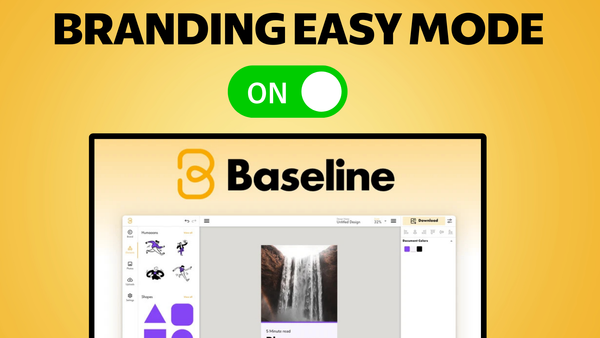SimilarContent Review | Rank On Google!? [AppSumo]
Explore SimilarContent's powerful SEO toolkit - from topic analysis to content optimization. See if this AppSumo lifetime deal can boost your Google rankings.
![SimilarContent Review | Rank On Google!? [AppSumo]](/content/images/size/w1200/wordpress/2024/09/similar-content.jpg)
Introduction [00:00]
In the ever-evolving world of digital marketing, Search Engine Optimization (SEO) remains a critical factor for online success. While the adage “write great content, get ranked on Google” seems simple enough, many content creators and marketers find themselves struggling to achieve the desired results. Enter SimilarContent, a suite of tools designed to give you an edge in the competitive world of SEO.
This comprehensive review delves into SimilarContent, a powerful set of tools available as a lifetime deal on AppSumo. We’ll explore its six main features, discussing their functionalities, strengths, and potential drawbacks. From topic difficulty analysis to content optimization and keyword brainstorming, SimilarContent aims to provide data-driven insights to help you create content that ranks well on Google.
As we navigate through this review, we’ll examine how SimilarContent stacks up against other SEO tools, its unique offerings, and whether it’s worth the investment for your business. Whether you’re a seasoned content marketer or just starting your SEO journey, this in-depth look at SimilarContent will help you decide if it’s the right tool to boost your Google rankings and online visibility.
Get SimilarContentAppSumo Deal Overview [01:30]
The SimilarContent deal on AppSumo offers a unique opportunity for content creators and marketers to access a comprehensive suite of SEO tools at a fraction of the usual cost. Here’s a detailed breakdown of what’s included in the offer:
Pricing and Stacking
- Single code price: $79
- Ability to stack up to 5 codes to increase account limits
- More expensive than typical $49 AppSumo offerings, but potentially offers great value
Account Limits Per Code
- 100 topic difficulty searches
- 10 article optimizations per day
- 10 article rewrites per day using content spinner
Article Length Limitations
- Content rewriter: 1,000 words per code for each article
- Content optimizer: Hard limit of 10,000 words per article, regardless of stacked codes
User Accounts
- Capped at 2 users maximum
- Second user available with purchase of 2 codes
Value Proposition
While the deal is pricier than many AppSumo offerings, it potentially provides excellent value when compared to similar tools that often charge hundreds of dollars per month for comparable features. For businesses and individuals who regularly produce content for websites, this lifetime deal could be a game-changer in terms of long-term cost savings and SEO capabilities.
Considerations
- Higher initial investment compared to typical AppSumo deals
- Stacking codes increases functionality and limits
- User account limitation may be a drawback for larger teams
- Word count limitations may affect users working with very long-form content
SimilarContent’s Six Main Tools [03:15]
SimilarContent offers a suite of six powerful tools designed to enhance your SEO strategy and content creation process. Each tool serves a specific purpose in helping you research, optimize, and create content that has a better chance of ranking well on Google. Let’s explore each of these tools in detail:
1. Topic Difficulty
The Topic Difficulty tool is designed to help you determine what content you should write about and assess the difficulty of ranking for specific keywords. Here’s how it works:
- Enter your desired keyword or topic into the search bar
- The tool analyzes the competitive landscape for that keyword
- Provides a difficulty score on a scale of 1-100
- Offers insights on whether backlinks will be necessary to rank
- Shows the relevancy scores of top-ranking articles for comparison
2. Content Optimizer
This tool aims to increase the relevancy of your existing content to improve its chances of ranking higher on Google. Key features include:
- Ability to paste in your content or provide a URL for analysis
- Provides suggestions for keywords to add, remove, or use more frequently
- Offers a target relevancy score to aim for
- Analyzes your content’s structure and provides recommendations
3. Keyword Brainstorming
Similar to Google’s Keyword Planner but focused on organic search, this tool helps you:
- Find new keyword opportunities related to your topic
- Discover search frequency for various keywords
- Focus solely on organic search potential, without CPC metrics
4. Micro Niche Finder
This tool helps you uncover niche topics within broader categories:
- Start with a general keyword to find more specific niches
- Provides lists of questions asked by customers in each niche
- Helps identify potential content ideas for targeted audiences
5. Content Rewriter
While somewhat controversial in the SEO world, this tool offers:
- The ability to “spin” content by replacing words with synonyms
- A way to create variations of existing content
- Caution is advised, as Google may not favor this approach
6. Today’s Fresh Keywords
This tool helps you identify trending topics and keywords:
- Shows top search terms in your region
- Allows you to quickly assess the difficulty of trending keywords
- Provides opportunities for timely content creation
By leveraging these six tools, SimilarContent aims to provide a comprehensive approach to SEO and content creation, from initial topic research to final optimization.
Topic Difficulty Tool Deep Dive [06:45]
The Topic Difficulty tool is one of SimilarContent’s key features, designed to help content creators assess the competitiveness of keywords and topics. This in-depth analysis can be crucial in determining whether a particular topic is worth pursuing and what resources might be needed to rank well. Let’s explore the tool’s functionality and usefulness:
Search Process and Results
- Enter your desired keyword in the search bar
- Auto-complete suggestions are provided for similar searches
- Analysis takes about 50 seconds to produce results
- Results include a main metric: Topic Difficulty Score
Topic Difficulty Score
- Scored on a scale of 1-100
- Provides a quick assessment of keyword competitiveness
- Example: “app sumo briefcase” received a score of 42.7
- Includes notes on whether backlinks will be required to rank
Competing Articles Analysis
- Shows top 10 ranking articles with their relevancy scores
- Reveals why some articles might rank higher despite lower relevancy
- Considers factors like domain authority in addition to content relevancy
Optimization Suggestions
- Provides “to optimize” keywords for various content elements:
- Titles
- Descriptions
- Synonyms
- Related keywords
- Sentiments
- Concepts
- Entities
Google SERP Analysis
- Displays search engine results for top 10 listings
- Shows content relevancy scores alongside each result
- Indicates which listings are using recommended “to optimize” keywords
Tool Efficiency and Usefulness
- Saves time compared to manual research (minutes vs. 30-60 minutes)
- Provides a decent summary of keyword competitiveness
- May not uncover groundbreaking information but offers a quick overview
User Interface Considerations
- Lack of easy navigation back to previous searches
- Search history doesn’t allow direct access to past result data
The Topic Difficulty tool offers valuable insights for content strategists and SEO professionals, helping to guide content creation efforts towards topics with the best potential for ranking success. While it may not replace in-depth manual research entirely, it serves as an efficient starting point for assessing keyword competitiveness and planning content strategies.
Content Optimization Tool Exploration [10:30]
The Content Optimization tool is a key feature of SimilarContent, designed to help writers and marketers improve the relevancy of their content for better search engine rankings. This tool analyzes existing content and provides actionable recommendations for optimization. Let’s delve into its functionality and benefits:
Content Input Methods
- Direct text input: Write or paste your content into the tool
- URL input: Enter the URL of a published article for analysis
Analysis Process
- Click the “Analyze” button to initiate the content evaluation
- Tool processes the content and provides a comprehensive report
Keyword Analysis and Recommendations
The tool categorizes keywords into four main tabs:
Not Found:
- Keywords missing from your content
- Suggestions for additional terms to include
Low:
- Underused keywords in your content
- Recommendations for increased usage frequency
Good:
- Keywords used appropriately in your content
- Confirmation of well-optimized terms
Extremely:
- Overused keywords in your content
- Suggestions for reducing keyword density
Additional Content Insights
- Word count of the article
- Multi-word keyword recommendations
- Suggested questions to address in the content
- Google category prediction for proper content classification
Keyword Ranking Predictor
- Shows keywords with the best potential for ranking
- Helps focus optimization efforts on high-impact terms
Concept and Entity Analysis
- Identifies general concepts covered in the article
- Lists entities (people, places, organizations) mentioned in the content
Relevancy Score
- Provides a current relevancy score for your content
- Offers a target score to aim for during optimization
User Experience Considerations
- Some UI/UX issues noted, such as notification overlap with the analyze button
- Language in certain sections (e.g., “Extremely” tab) could be clearer
Effectiveness and Limitations
- Offers good theories and ideas for content improvement
- Actual ranking improvements can only be verified over time
- May occasionally misinterpret content focus or category
The Content Optimization tool provides valuable insights for improving content relevancy and potential search engine performance. While it offers helpful suggestions, it’s important to use these recommendations in conjunction with your own expertise and understanding of your target audience. The tool serves as a guide for optimization, but the final decisions on content adjustments should always consider the overall context and goals of your content strategy.
Keyword Brainstorming and Micro Niche Finder [15:00]
SimilarContent offers two interconnected tools for discovering keyword opportunities and uncovering niche topics: the Keyword Brainstorming tool and the Micro Niche Finder. These tools aim to help content creators identify promising content ideas and target specific audience segments. Let’s explore both tools in detail:
Keyword Brainstorming Tool
The Keyword Brainstorming tool is designed to help you find topics with organic ranking potential, focusing solely on search volume without the distraction of cost-per-click metrics found in tools like Google Keyword Planner.
Key features and observations:
- Searches for related keywords based on your input
- Provides search frequency data for each keyword
- Strips out CPC metrics to focus on organic potential
- Results can be limited for very specific searches
- Better results achieved with broader search terms
- Frequency thresholds may be high, potentially missing low-volume but valuable keywords
Pros:
- Focuses solely on organic search potential
- No need for a Google Ads account
- Quick way to assess keyword opportunities
Cons:
- Limited results for specific queries
- Lack of CPC data may be a drawback for some users
- Frequency thresholds may be too strict for niche topics
Micro Niche Finder
The Micro Niche Finder tool aims to uncover specific niches within broader categories, helping content creators target more focused audience segments.
Key features and observations:
- Requires broad initial search terms to yield results
- Provides lists of subcategories within the main topic
- Offers questions asked by customers in each niche
- Lacks frequency data for suggested questions
- No back button for easy navigation between results
Pros:
- Helps identify specific content ideas within broader topics
- Provides real customer questions for content inspiration
- Useful for discovering unexplored content angles
Cons:
- Requires very broad initial searches
- Lack of search volume data for suggested questions
- Navigation issues when exploring different niches
Synergy Between the Tools
While each tool has its limitations, using them in conjunction can provide valuable insights:
- Start with Keyword Brainstorming to identify broader topics with search potential
- Use Micro Niche Finder to drill down into specific subtopics and questions
- Combine the insights to create targeted content that addresses specific user needs while also having search volume potential
Considerations for Use
- These tools are best used as starting points for content ideation
- Combine tool suggestions with your own industry knowledge and user research
- Cross-reference findings with other SEO tools for a more comprehensive strategy
- Keep in mind the UI limitations when navigating between searches and results
While the Keyword Brainstorming and Micro Niche Finder tools have room for improvement, they offer a unique perspective on content opportunities. By focusing on organic potential and specific user questions, these tools can help content creators discover valuable niches and topics that might be overlooked using traditional keyword research methods.
Get SimilarContentContent Rewriter and Today’s Fresh Keywords [19:00]
SimilarContent offers two additional tools that cater to different aspects of content creation and SEO strategy: the Content Rewriter and Today’s Fresh Keywords. While these tools serve distinct purposes, they both aim to provide content creators with ways to enhance their SEO efforts. Let’s examine each tool in detail:
Content Rewriter
The Content Rewriter, also known as a “content spinner,” is a tool designed to create variations of existing content by replacing words with synonyms or rearranging sentence structures.
Key features and observations:
- Allows users to input existing content for “spinning”
- Generates variations of the original text
- Uses synonym replacement and sentence restructuring
- Results may vary in quality and coherence
Pros:
- Quick way to create content variations
- May help avoid duplicate content issues in some cases
Cons:
- Often produces low-quality or unnatural-sounding content
- Considered a “spammy” tactic by many SEO professionals
- Unlikely to fool sophisticated search engine algorithms
- May not provide significant SEO benefits
Considerations for use:
- Use with caution, as search engines prioritize original, high-quality content
- Best reserved for generating ideas rather than publishing directly
- Always review and heavily edit any “spun” content before use
Today’s Fresh Keywords
The Today’s Fresh Keywords tool is designed to help content creators identify trending search terms in their region, allowing them to capitalize on current topics and search interests.
Key features and observations:
- Provides a list of 20 trending keywords based on your input
- Allows users to check the topic difficulty of trending keywords
- Aims to help create timely, traffic-driving content
Pros:
- Helps identify current trends and popular search terms
- Potential for creating timely, relevant content
- Integration with topic difficulty tool for quick assessment
Cons:
- Similar functionality available for free through Google Trends
- Limited to 20 keywords per search
- May not provide deeper insights than freely available tools
Considerations for use:
- Cross-reference with other trend analysis tools for validation
- Use as a starting point for identifying potential timely content ideas
- Consider the longevity of trending topics before investing in content creation
Comparing the Tools
While both tools aim to assist with content creation and SEO, they serve very different purposes:
- Content Rewriter: Focuses on content variation but risks producing low-quality results
- Today’s Fresh Keywords: Helps identify current trends but may not offer unique insights
Integration with Other SimilarContent Tools
To maximize the value of these tools within the SimilarContent suite:
- Use Today’s Fresh Keywords to identify potential trending topics
- Assess the topic difficulty of trending keywords
- Use the Content Optimizer to ensure your timely content is well-optimized
- Avoid relying heavily on the Content Rewriter for published content
Final Thoughts
While the Content Rewriter and Today’s Fresh Keywords tools have their limitations, they can be useful when applied thoughtfully within a broader content strategy. The Content Rewriter should be used sparingly and with caution, while Today’s Fresh Keywords can serve as a quick pulse check on current trends. As with any SEO tool, the key is to use these features as part of a comprehensive approach that prioritizes creating high-quality, original content that serves your audience’s needs.




